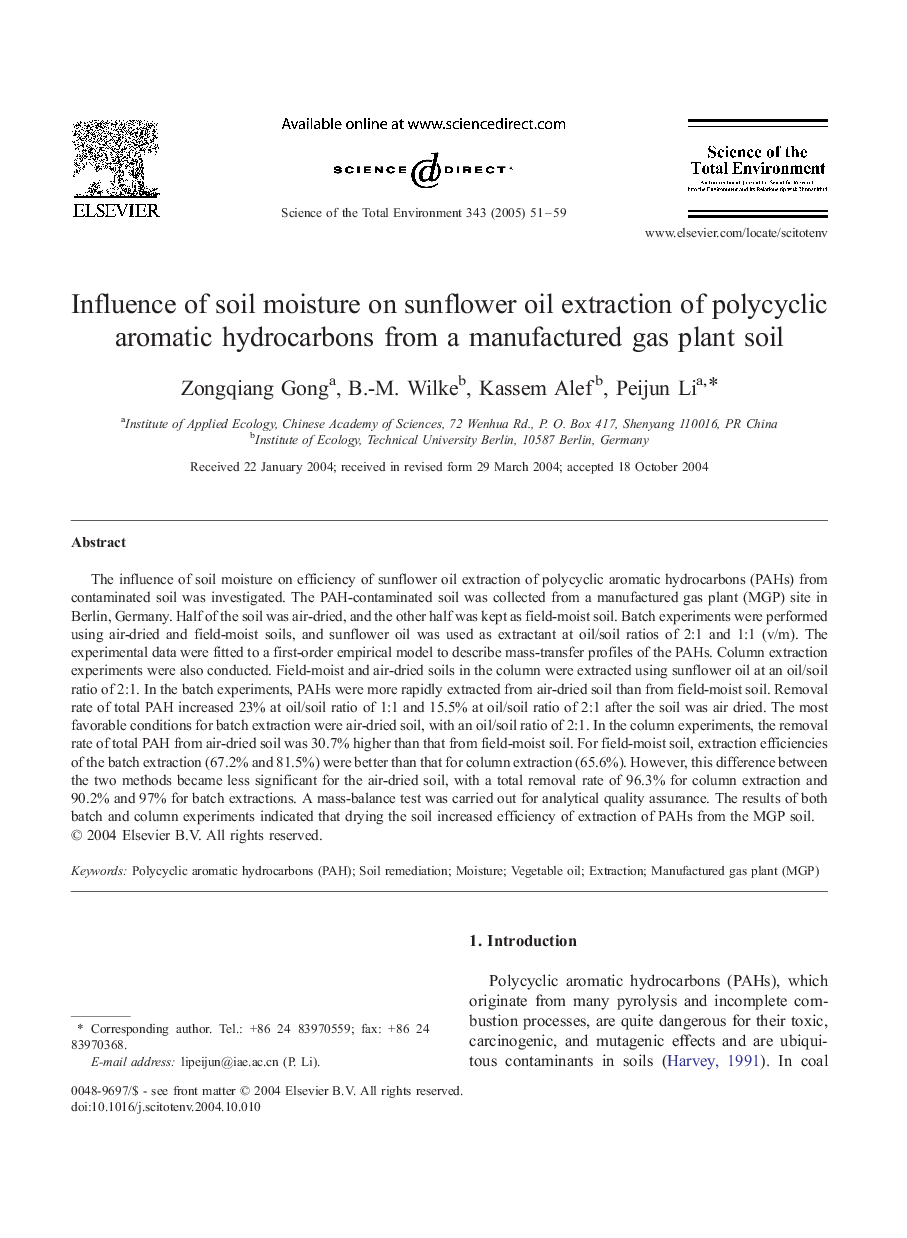| Article ID | Journal | Published Year | Pages | File Type |
|---|---|---|---|---|
| 10110835 | Science of The Total Environment | 2005 | 9 Pages |
Abstract
The influence of soil moisture on efficiency of sunflower oil extraction of polycyclic aromatic hydrocarbons (PAHs) from contaminated soil was investigated. The PAH-contaminated soil was collected from a manufactured gas plant (MGP) site in Berlin, Germany. Half of the soil was air-dried, and the other half was kept as field-moist soil. Batch experiments were performed using air-dried and field-moist soils, and sunflower oil was used as extractant at oil/soil ratios of 2:1 and 1:1 (v/m). The experimental data were fitted to a first-order empirical model to describe mass-transfer profiles of the PAHs. Column extraction experiments were also conducted. Field-moist and air-dried soils in the column were extracted using sunflower oil at an oil/soil ratio of 2:1. In the batch experiments, PAHs were more rapidly extracted from air-dried soil than from field-moist soil. Removal rate of total PAH increased 23% at oil/soil ratio of 1:1 and 15.5% at oil/soil ratio of 2:1 after the soil was air dried. The most favorable conditions for batch extraction were air-dried soil, with an oil/soil ratio of 2:1. In the column experiments, the removal rate of total PAH from air-dried soil was 30.7% higher than that from field-moist soil. For field-moist soil, extraction efficiencies of the batch extraction (67.2% and 81.5%) were better than that for column extraction (65.6%). However, this difference between the two methods became less significant for the air-dried soil, with a total removal rate of 96.3% for column extraction and 90.2% and 97% for batch extractions. A mass-balance test was carried out for analytical quality assurance. The results of both batch and column experiments indicated that drying the soil increased efficiency of extraction of PAHs from the MGP soil.
Related Topics
Life Sciences
Environmental Science
Environmental Chemistry
Authors
Zongqiang Gong, B.-M. Wilke, Kassem Alef, Peijun Li,
